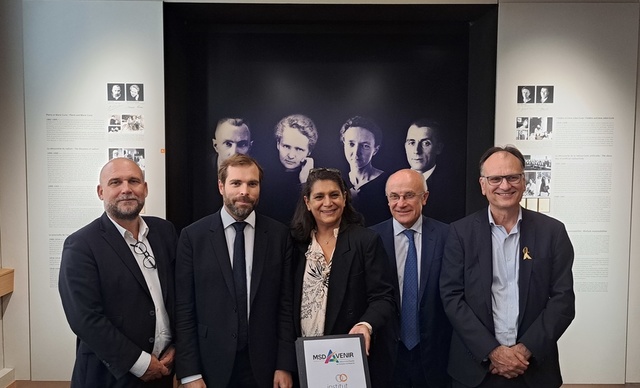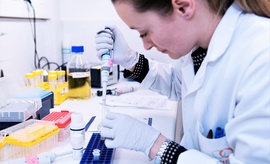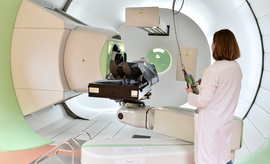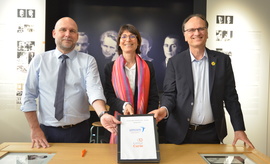Institut Curie and MSDAVENIR sign a partnership to improve treatment of thymus cancer

Malignant tumors of the thymus[1], the central organ of the immune system, affect around 250 people each year in France. In most cases these cancers begin in the epithelial cells of the thymus; we call them thymic epithelial tumors (TETs). Current treatments involve mainly surgery, when possible, since this treatment is associated with the longest survival rate. Other therapeutic strategies such as chemotherapy, radiotherapy or antiangiogenic treatments[2], are of limited effectiveness.
Thymic tumors are rare, orphan tumors that can be particularly aggressive and often lead to relapse. Today there is no secondary therapeutic option when initial therapies fail, particularly with advanced or metastatic TETs. It is therefore more necessary than ever to develop novel and tailored treatments to effectively fight these cancers, and improve survival rates and quality of life for patients.
explains Prof. Nicolas Girard, oncologist and pulmonologist at the head of Institut du Thorax Curie-Montsouris.
Understanding thymic tumors in order to better treat them
Named “IMMUNO-TET”, this project will draw on the excellence and the unique multi-disciplinarity offered by Institut Curie’s Research Center and Hospital Group in terms of basic research, translational research and clinical research. It will attempt to characterize the tumor microenvironment of TETs, by identifying their immune and molecular characteristics, in order to better understand the mechanisms at the root of these tumors. The use of these data will help identify various types of TETs, [3]which will provide a solid basis for developing targeted therapies and immunotherapies. These approaches could provide new treatment innovations in the care of patients.
A key characteristic of TETs is their tendency to cause the development of auto-immune reactions. The study of the immune microenvironment of TETs will help to identify patients at high or low risk of deterioration of auto-immune disorders and thus opt for the most appropriate therapies.
This project will lead to progress in cancers with poor prognosis, which include rare cancers such as thymic cancer, as recommended in the Ten-Year Cancer Plan.
Institut Curie, an expert in treatment of thymic cancer
Institut Curie has unique expertise in the multidisciplinary treatment of tumors of the thymus, through the creation in 2017 of a center of excellence dedicated to patients with thoracic tumors: the Curie-Montsouris Chest Center, under the responsibility of Prof. Nicolas Girard. Institut Curie teams will collaborate with teams from the Institut Mutualiste Montsouris to recruit patients and collect samples.
We are delighted about the launch of IMMUNO-TET, offering new opportunities for the treatment of thymic cancer, representing new hope for patients. With IMMUNO-TET, our research teams and our medical teams will channel the resources and expertise required to develop new therapeutic solutions that are more innovative and more effective. This project would not have come to fruition without the support of MSDAVENIR, whose commitment we share to accelerating the design of treatments of the future.
explains Prof. Steven Le Gouill, director of the Hospital group at Institut Curie and Prof. Alain Puisieux, Director of Institut Curie Research center.
“We are delighted that the MSDAVENIR endowment fund can support the IMMUNO-TET project that aims to develop new therapeutic strategies to fight thymic cancer,” declares Clarisse Lhoste, chair of the Board of directors of MSDAVENIR and Dr. Golriz Pahlavan, member of MSDAVENIR’s Board of directors. “The quality and multidisciplinary approach of this research program is a perfect illustration of our fund’s goal, which is to support the most innovative research teams in France.”
[1] A small gland located in the upper part of the chest, between the lungs and below the sternum, the thymus has two main functions: fighting infection, disease and other foreign bodies, by producing T-lymphocytes, and the proper functioning of the immune system, through the production of hormones.
[2] Antiangiogenic treatments aim to eradicate the tumor by depriving it of nutrients and of oxygen.
[3] There are several types of TETs. Their classification helps to distinguish thymomas - divided into five sub-types (A, AB, B1, B2 and B3) - and thymic carcinomas.





